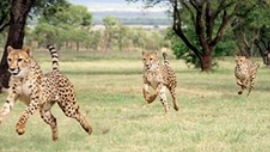
Cheetahs are highly specialized predators, known for their incredible speed and unique hunting tactics.
Here’s see how cheetah hunting tactics –
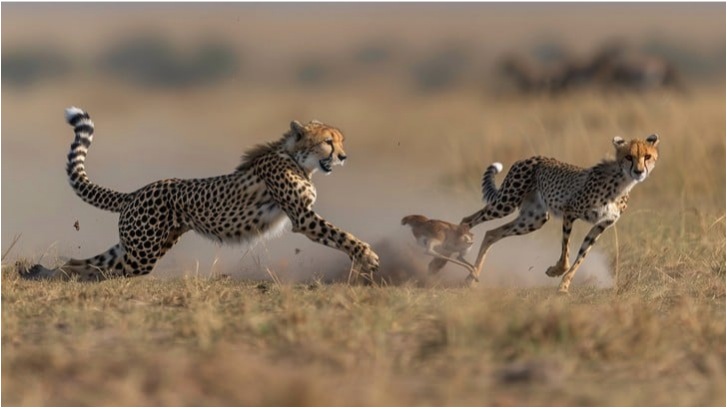
Hunting Tactics
1. Spotting Prey🐆🐆
Cheetahs rely on their excellent eyesight to spot prey during daylight hours. They usually target medium sized herbivores, such as gazelles, impalas, or young wildebeests.
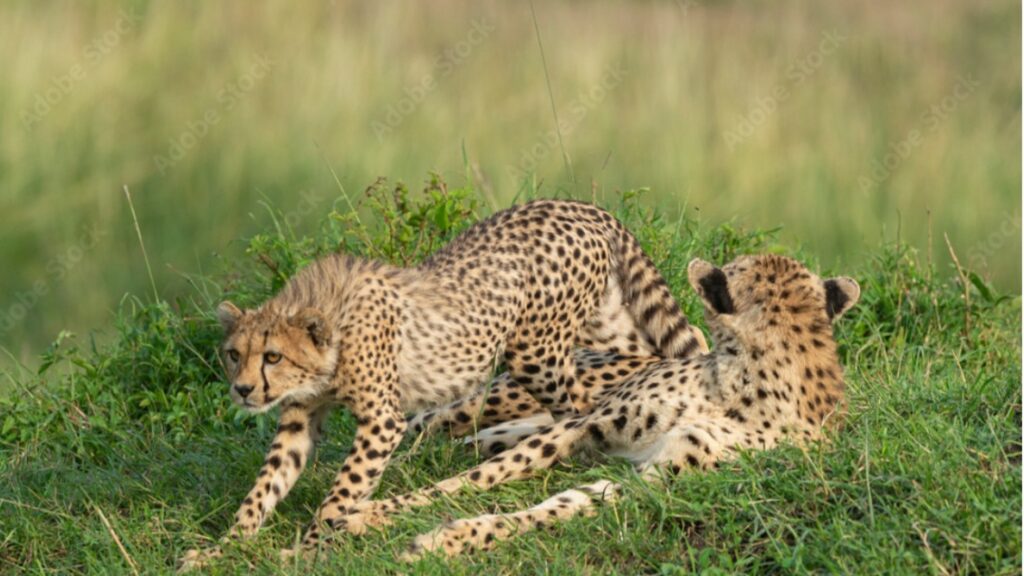
2. Stalking 🐆🐆
Cheetahs approach their prey stealthily, keeping low to the ground and using tall grass or other cover to remain unseen. They get as close as possible often within 30–60 feet before initiating a chase.
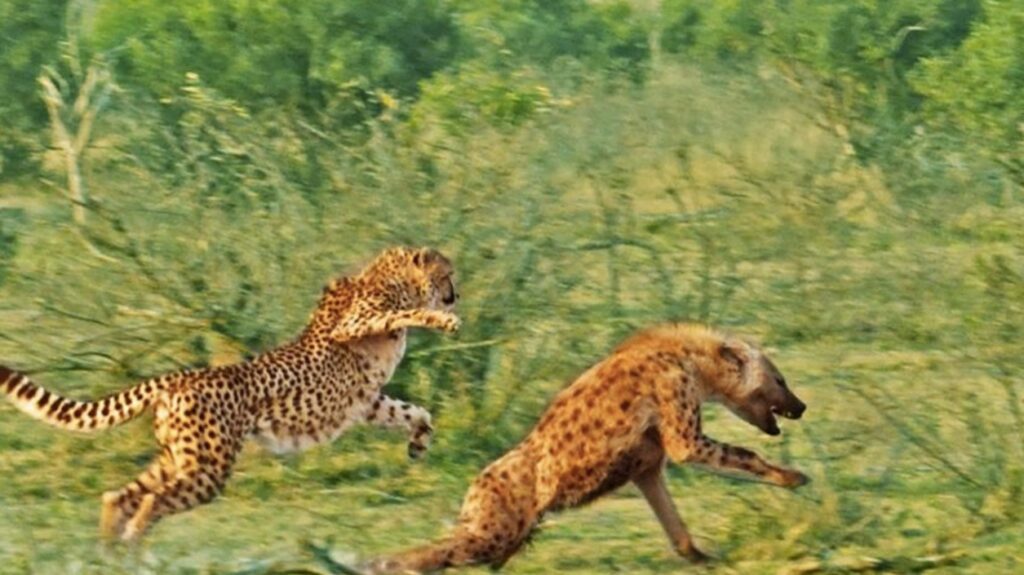
3. Explosive Chase🐆🐆
Once close, the cheetah accelerates rapidly, reaching speeds of up to 70 mph 112 km/h in short bursts. Their chases rarely last more than 20–30 seconds due to the immense energy required.
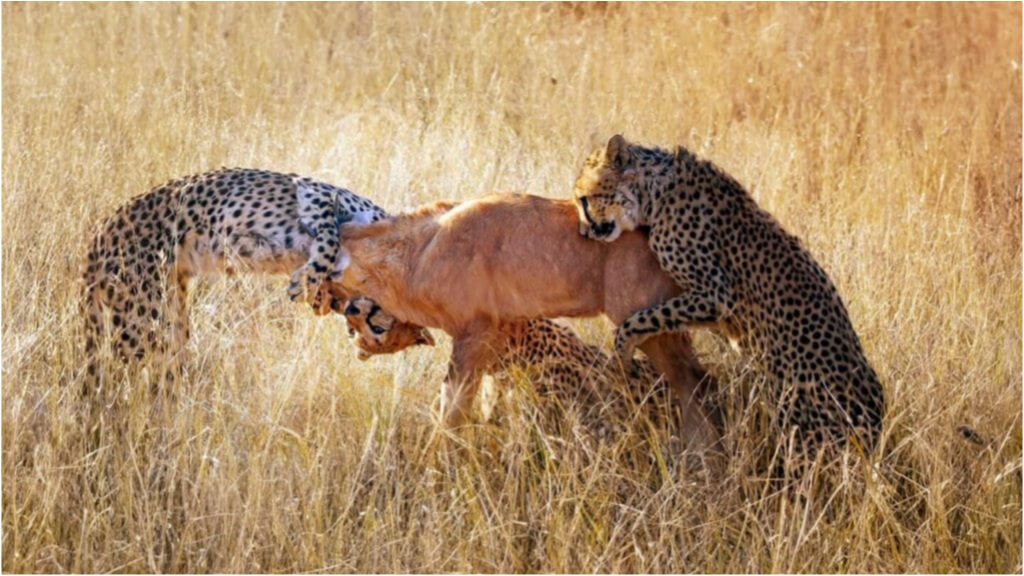
4. Precision Targeting 🐆🐆
During the chase, cheetahs focus on a single animal, aiming to trip it by swiping at its legs or biting its neck.
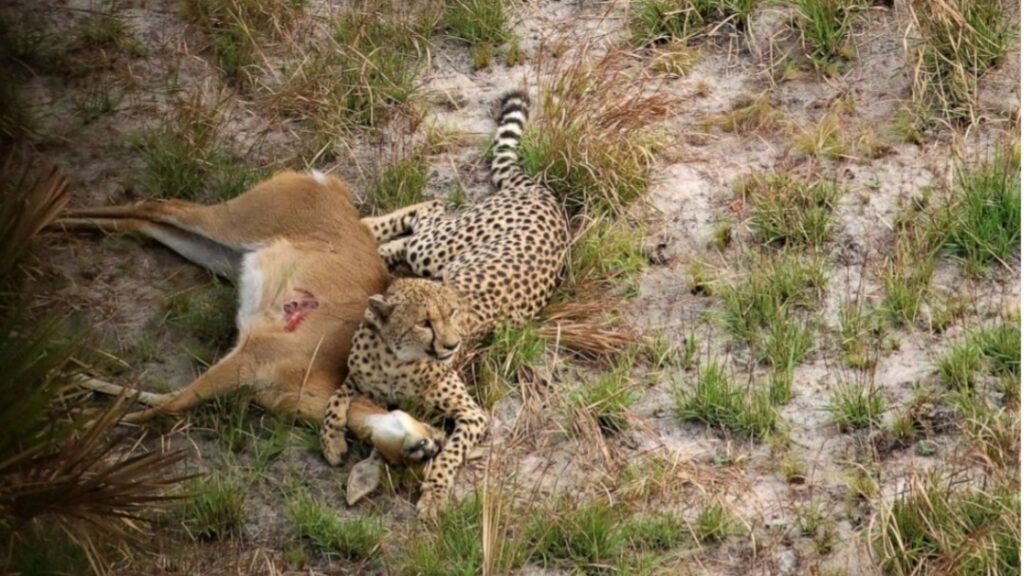
5. Kill Method🐆🐆
After bringing the prey down, the cheetah suffocates it by clamping its jaws around the prey’s throat.
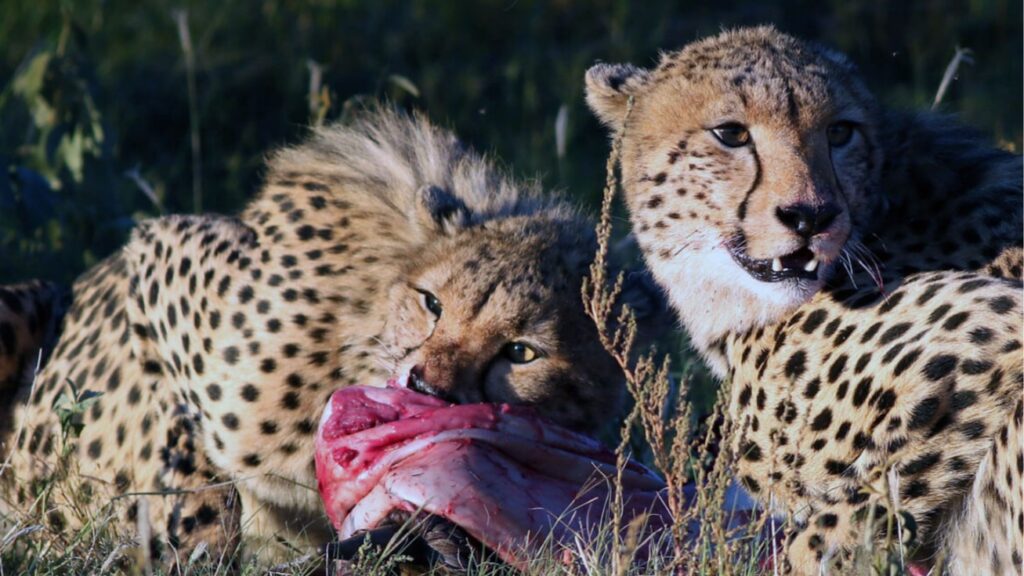
6. Quick Consumption🐆🐆
Cheetahs eat quickly to avoid losing their kill to larger predators like lions, leopards, or hyenas.
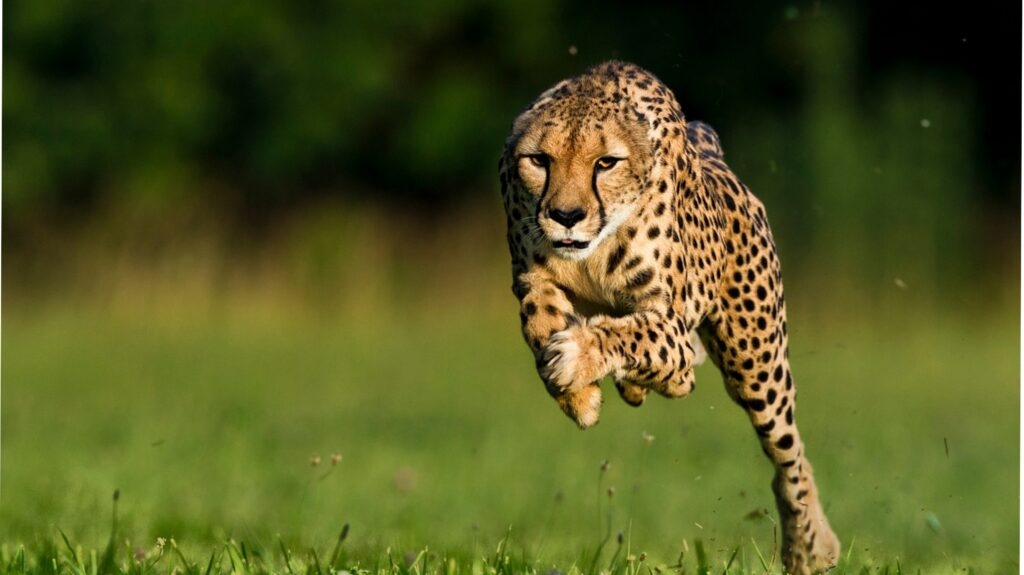
7. Adaptations for Hunting🐆🐆
Body Structure are Lightweight, aerodynamic bodies built for speed. Long, muscular tails for balance during high-speed turns.
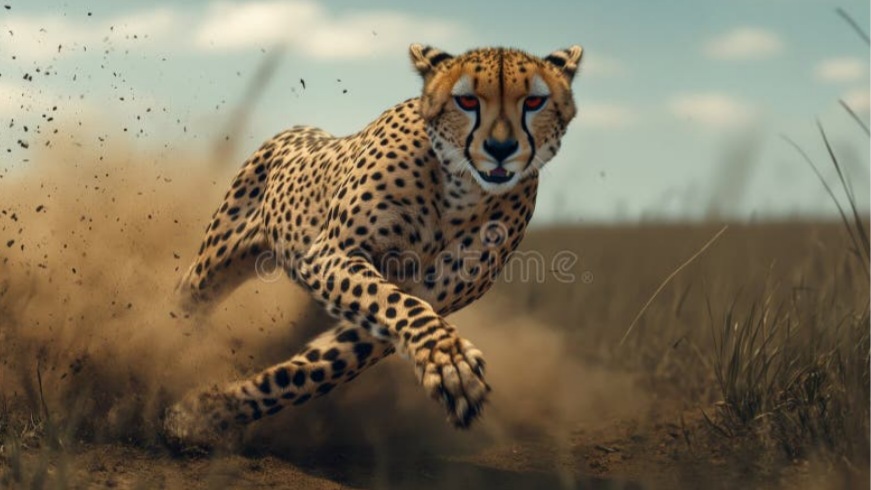
8. Claws🐆🐆
Semi-retractable claws provide grip during sprints. Excellent eyesight for spotting prey from a distance.
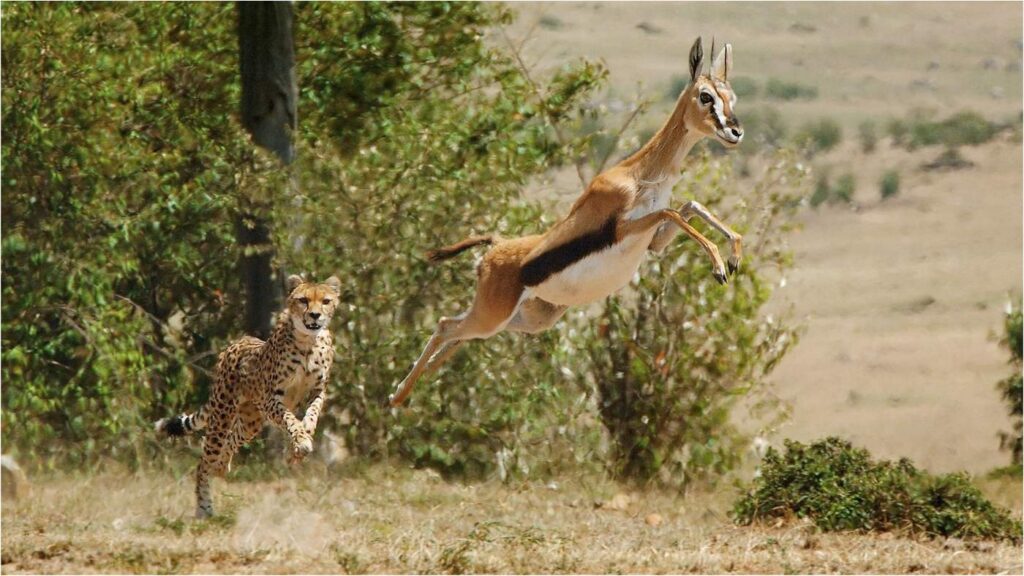
9. Challenges in Hunting🐆🐆
High energy expenditure makes failed hunts costly. Vulnerability to scavengers who may steal their kill.
Limited stamina means they rely on surprise and speed rather than endurance. Cheetahs are master sprinters, and their hunting strategy is a blend of stealth, speed, and precision.
🐆🐆🐆Facts of cheetahs hunt tactics –
🐆Cheetahs hunt in groups, coordinating their efforts to surround and outmaneuver their prey.
🐆Cheetahs often position themselves upwind of their prey to avoid detection by scent, giving them the element of surprise.
🐆Cheetahs anticipate the movements of their prey, cutting off potential escape routes and forcing the deer into vulnerable positions.
🐆Cheetahs leverage their knowledge of the terrain, using natural features like slopes or rocky outcrops to gain advantageous positions during the hunt.
🐆Cheetahs employ distraction techniques, such as feigning injury or sending one member of a group to draw the attention of the deer while others move in for the kill.
🐆When within striking distance, cheetahs use their powerful hind legs to pounce with remarkable accuracy, aiming to bring down their prey swiftly.
🐆Once the cheetah has caught its prey, it uses its strong jaws to clamp down on the deer’s throat, suffocating it quickly to minimize suffering.